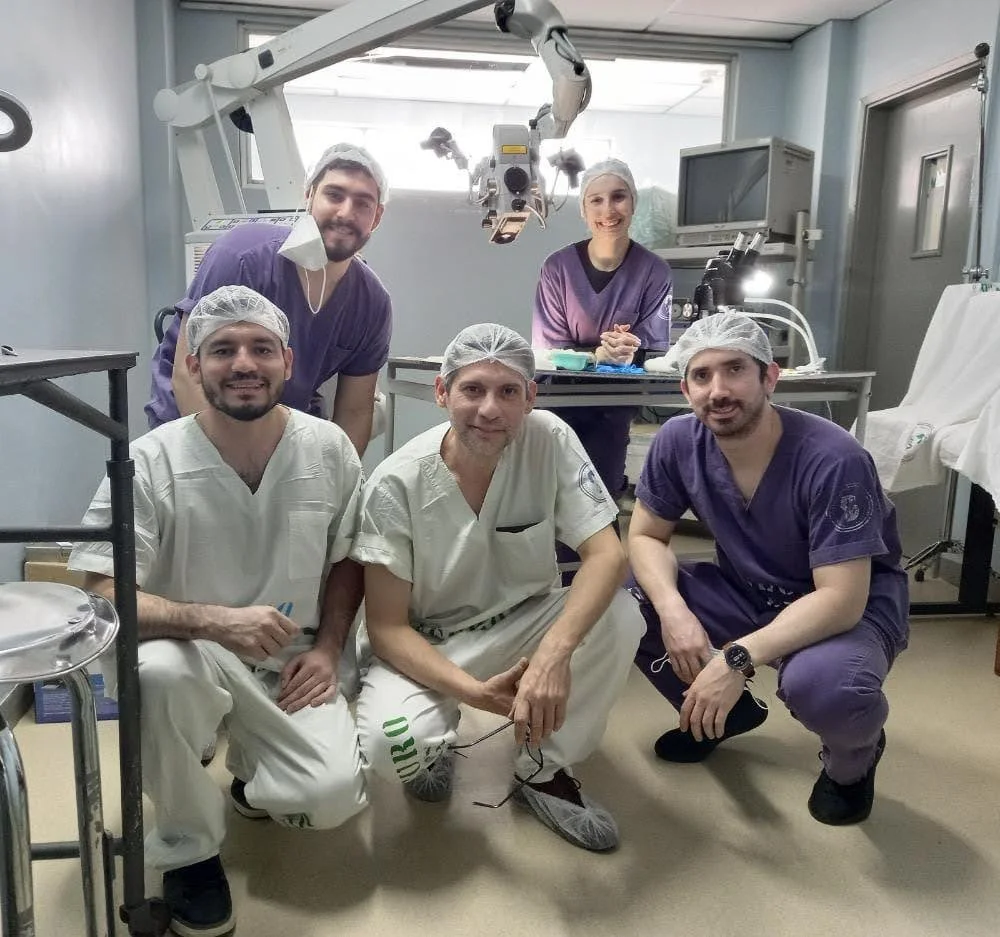Solidarity Bridge is pleased to announce the formal adoption of an agreement of cooperation with the Ministry of Health of Paraguay.
Our first three days in Paraguay included a Stroke Symposium, endovascular procedures, a cerebral bypass surgery, a presentation on revascularization, dinner with the Paraguayan Neurosurgical Society, and a two-day workshop on microsurgical bypass skills.
Read MoreHospital Nacional de Itauguá, Paraguay’s primary stroke center, faces multiple barriers to providing timely and effective care. This week, we’re co-hosting a Stroke and Cerebrovascular Disorders Program to support local efforts to fill gaps in stroke treatment skills and resources.
Read MoreOver 60 residents, students, and early-career doctors in Bolivia and Paraguay are participating in a UW-Madison virtual neurosurgery residency program facilitated by the NNI.
Read MoreEnsuring donated biomedical equipment remains in good working order requires access to spare parts and consumables, and biomedical engineers and technicians with the skills to provide ongoing maintenance and repairs. This was the impetus for a recent mission trip organized in partnership with the TriMedX Foundation.
Read MoreAnyone who has witnessed the devastating impact of a traumatic brain injury knows that an integrated approach is needed to care for patients and support their reintegration into society. On a November NNI trip to Hospital Santa Bárbara in Sucre, Bolivia, we expanded our focus to the entire spectrum of care for TBIs.
Read MoreIn Bolivia’s public hospitals, head trauma from traffic accidents, falls, or violence represents a pressing healthcare burden. Head and spine injuries not only affect the long-term quality of life of the injured patient but of entire families and communities.
Read MoreMany trainees in developing countries don’t have access to a practice space for advanced techniques. This drives motivated doctors to move abroad for their educational advancement and contributes to a drain on the medical workforce in low-income countries.
Read MoreThe three patients treated during our trip had experienced sudden and severe headaches and nausea, caused by a high-grade AVM. The complexity of their cases pushed the limits of surgical treatment available in Paraguay. But the doctors at the Hospital Nacional de Itaguá were motivated and eager to advance their skills in this type of care.
Read MoreToday is our third day at the Hospital Nacional de Itauguá, our second day of surgery. As we gathered in the faculty lounge, the surgeons seemed somewhat anxious. Yesterday’s surgery was successful, but today’s case will be much more difficult.
Read MorePediatric neurologists Dr. Victor Cuéllar and Dr. Shirley Martinez juggled patient care needs at the Children’s Hospital in Santa Cruz, Bolivia, with the imperative to use data from their extensive practice to study the incidence and risk factors for epilepsy in Bolivia. They recently partnered with the Solidarity Bridge Neurosurgery & Neurology Institute (NNI) for support.
Read MoreOur greatest teachers often are patients and their family members. It is through their eyes and experiences that we can begin to understand the challenges patients face in accessing a safe and timely surgery. On a recent trip with our Neurosurgery & Neurology Institute (NNI), I was humbled to learn more about Paraguay’s health system and culture from one such person.
Read MoreHow do we measure our work? We can count surgeries performed and medical supplies delivered, but what about our equally important work fostering relationships? The XXI Bolivian Congress of Neurosurgery in Santa Cruz reminded us of the power of relationships to improve access to safe and timely medical care.
Read MoreEmilia traveled with three of her four children from her home in Monteagudo, Bolivia, to the city of Sucre, seeking treatment for epilepsy. It was an eight-hour trip on mostly unpaved roads, but the children knew the journey was necessary to improve their mother’s health.
Read MoreAn estimated 70% of those who suffer epilepsy in Latin America and the Caribbean lack access to care. As we travel on mission and speak to dedicated local doctors, we know that these are not just statistics.















